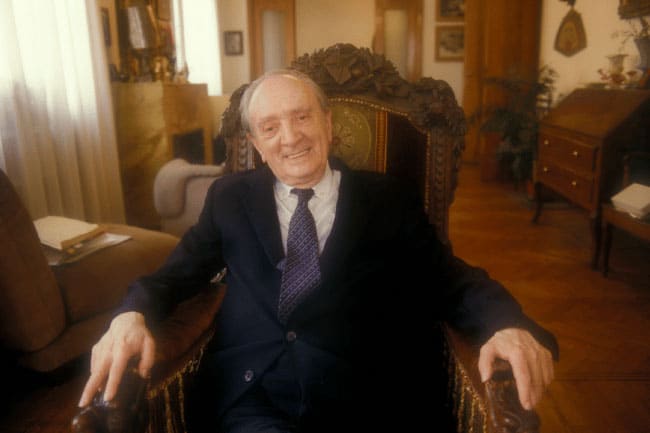
Destined to kill Christianity” far-left activists have sought to cancel Christianity and to intimidate and silence those of religious faith.
If the Communist Manifesto’s call for the workers of the world to unite and overthrow the bourgeoise was to succeed it was essential there was no higher, more sustaining and enriching countervailing allegiance.
While not as extreme as communist Russia under Lenin and Stalin, contemporary Australian society illustrates how pervasive and powerful far-left ideology still is in banishing Christianity and denying religious freedom and freedom of conscience.
While prominent examples of religious intolerance include figures like Israel Folau, Margaret Court and Andrew Thorburn, even more alarming is the less obvious, but more dangerous and infectious, campaign to abolish what the Italian cultural philosopher Augusto Del Noce terms the traditional, monogamous family.
As depicted in George Orwell’s 1984, where one of the neighbour’s sons betrays his mother and father for thoughtcrime, one of the primary strategies used by totalitarian governments to enforce control and domination is to replace family loyalty with subservience to the Party and the State.
In The Crisis Of Modernity Del Noce argues the monogamous family is one of the most essential conduits between the past and the present and what constitutes the good life when he writes “the idea of family is inseparable from the idea of tradition, from a deposit of truths that we have to tradere, to ‘hand down’”.
Parents are their children’s guardians and act as a bulwark against what Del Noce describes as an authoritarian, nihilistic ideology bereft of any sense of what is good, just and beneficial to human flourishing.
The radical secular attack on the family is best illustrated by Wilhelm Reich’s belief detailed in his book The Sexual Revolution that the only way to achieve sexual liberation is to destroy marriage defined as a life-long union between a man and a woman for the purpose of procreation.
Del Noce sums up Reich’s philosophy as arguing “the only ideas that should be tolerated are those that do not undermine ‘sexual happiness’ and the process of the disintegration of the traditional form of family”.
The Marxist-inspired attack on the sanctity of marriage is widespread. The commonwealth parliament has legislated to allow same-sex marriage and celebrants are no longer allowed to define marriage “as the union of a man and a woman, to the exclusion of all others, voluntarily entered into for life”. Schools across Australia have long since taught children multiple definitions of marriage on the basis that the nuclear family is obsolete. Children’s kindergarten books like The Gender Fairy and the ABC’s Play School have long since normalised same-sex marriages.
As a result of the 1960’s cultural revolution, a time when Reich’s book was rediscovered and the birth control pill became available, generations of young people have also prioritised sexual promiscuity and freedom instead of the idea of a monogamous, long term relationship epitomised by the sacrament of marriage.
“…contemporary Australian society illustrates how pervasive and powerful far-left ideology still is in banishing Christianity and denying religious freedom and freedom of conscience.”
What was once known as ‘living in sin’ is no longer seen as an issue, partners experiencing multiple relationships are increasingly common and getting pregnant outside marriage is no longer seen as unusual or something to be worried about.
As argued by the American academic Mary Eberstadt, who recently visited Australia on behalf of the ACU’s PM Glynn Institute, the impact of the 60’s sexual revolution has been especially far reaching and profound.
In Primal Screams: How The Sexual Revolution Created Identity Politics, Eberstadt writes: “Not only in the United States, but around many parts of the world, the revolution has included the di-stigmatisation of nonmarital sex in all its varieties, and the sharp rise in behaviors that were formally rare or stigmatised or both”.
Included among the destructive consequences, Eberstadt lists: “skyrocketing rates of abortion, fatherless homes, family shrinkage, family breakup and other phenomena that have become commonplace in the world since the 1960s”.
Such is the dramatic decline in marriage as an institution, the UK based Civitas reports that in 2021 the number of children born outside marriage exceeds the number of children born to married couples.
Ignored by those arguing that marriage as traditionally defined is obsolete and of no inherent value is the reality that the nuclear family, across cultures and throughout history, is critically important to society’s cohesion and prosperity. Marriage, for all its challenges, acts as a bulwark against state control and totalitarian over-reach and ensures each succeeding generation is grounded in the culture in which they are born. The nuclear family is also better situated to provide the moral, spiritual and intellectual framework without which children are morally and emotionally adrift.
